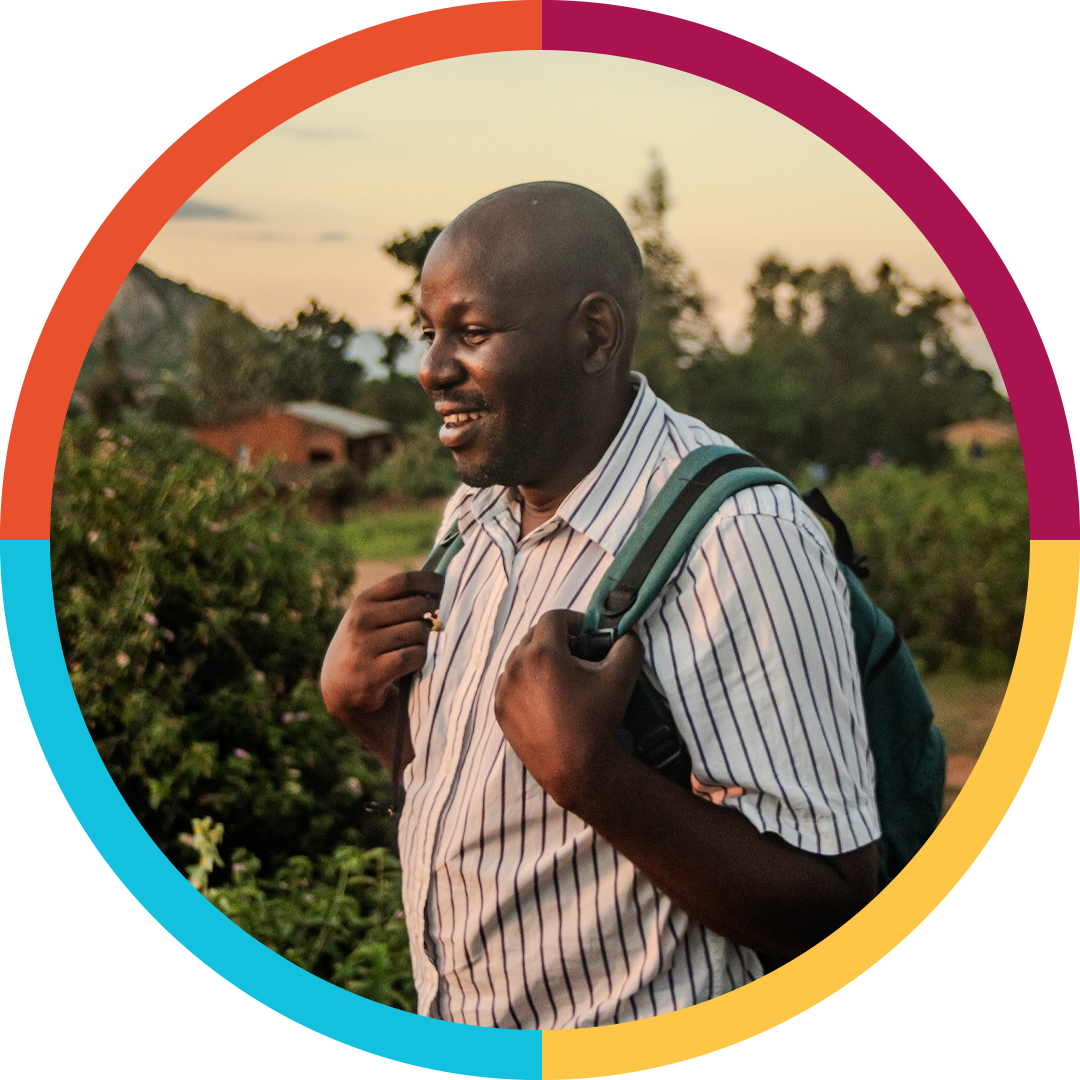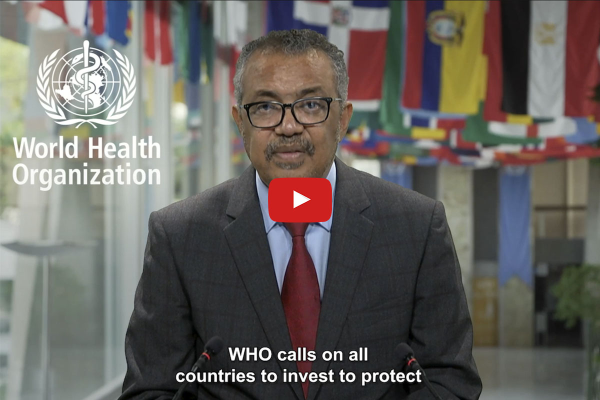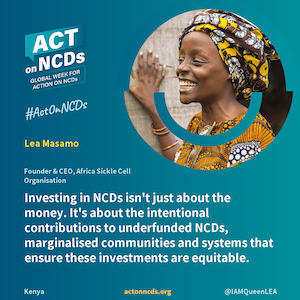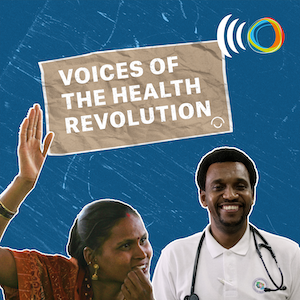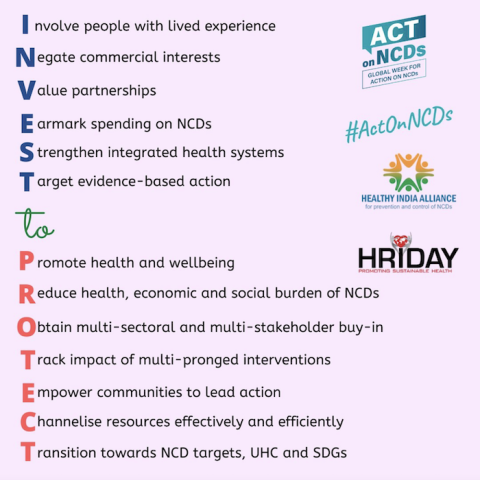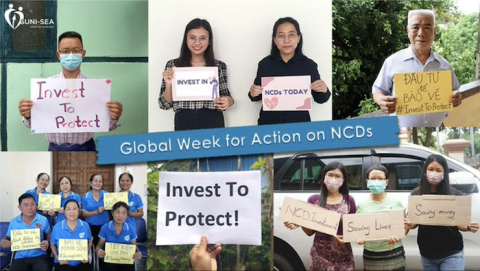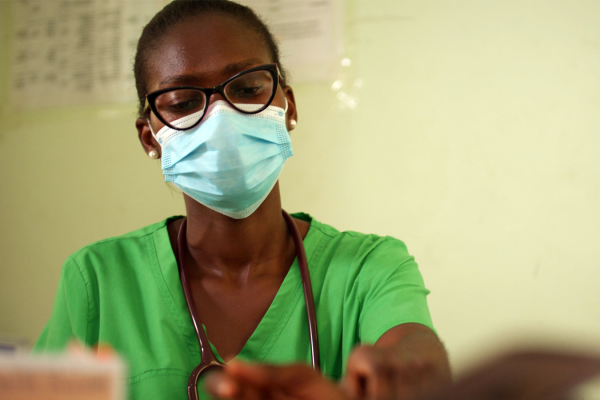Bigger and better is the simplest way to describe the NCDA Global Week for Action 2022, which ended Sunday, 11 September, thanks to the voices raised in person and virtually by members of the NCD community worldwide.
Online activity around the hashtag #ActOnNCDs zoomed higher this year while our keynote event on the week’s theme, Invest to protect, brought together, virtually, close to 300 members of the global NCD movement. Other events included:
- The Rwanda NCD Alliance looked to engagement of youth, NCD advocates, people living with NCDs, and the media to advocate for more investment in order to turn the tide on NCDs.
- Nada India Foundation organised a consultation on tobacco tax in Himachal State.
- Tanzania NCD Alliance held a discussion with HIV and NCD stakeholders on integration and NCDs financing.
Some of the most respected names in global health lent their voices to the event on 8 September. WHO Director-General Tedros and WHO Global Ambassador for Noncommunicable Diseases and Injuries Michael Bloomberg offered recorded welcome messages via video. “The WHO,” said Tedros, “calls on all countries to invest to protect their people and their economies from NCDs.”
Bloomberg quoted from research by the Task Force on Fiscal Policies for Health, which he co-chaired. “If all countries significantly raised taxes on tobacco, alcohol and sugary beverages, we could prevent over 50 million premature deaths over the next 50 years,” he noted.
The webinar was just one of 52 events submitted to the Map of Impact in 2022, the fifth year of the Week for Action. Other highlights included:
- 400+ Voices of Change cards posted online by members of the global NCD community
- NCDA reached 30,000 followers on Twitter during the Week
- The hashtag #ActOnNCDs trended in Rwanda — twice.
At the 8 September event, Rachel Nugent, Vice President of Global NCDs at RTI International, highlighted progress that has been made in recent years on gathering evidence for fighting NCDs, also known as chronic diseases. “We have more detailed investment cases on mental health, on tobacco, on obesity, on cancer, on specific NCDs. Now, why is that important? It’s important because that’s what helps guide countries on how to do things better.”
Dr. Omary Ubuguyu, Director for Curative Services for the Ministry of Health in Tanzania, stressed the need to scale up interventions in the community. “Most of our people are not aware of NCDs. If we join forces and go to the community, we can help them to understand NCD risk factors, early detection and treatment—again collaborating with other sectors to fight NCDs.”
During the Week activity was up across all NCDA social media channels. For example:
- Website visits rose more than a third
- Video views nearly tripled
- New social followers grew 20-fold
- Report downloads rose compared to 2021.



